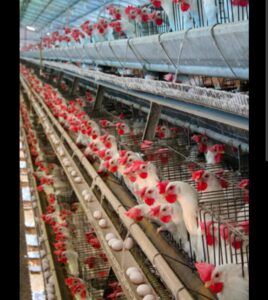The Global Poultry Industry: Trends, Challenges, and Opportunities
The Global Poultry Industry: Trends, Challenges, and Opportunities
Introduction
The poultry industry plays an important role in food production worldwide and is an important source of protein. With increasing demand for poultry products due to population growth, rising incomes and changing food preferences. The challenges facing the international poultry industry and the opportunities for growth and innovation.
Trends in the Global Poultry Industry:
Rising Demand: The Global Poultry Industry: Trends, Challenges, and Opportunities. Global demand for poultry products is increasing due to population growth, urbanization and increasing consumer awareness. Developing markets, particularly Asia and Africa, are experiencing significant growth in poultry consumption as incomes and dietary preferences increase.
https://samaviagull.com/?p=138&preview=true
Technological Advancements:
Advances in genetics, nutrition and management practices have led to significant improvements in poultry production efficiency. Automatic feeding systems, genetic selection for disease resistance and proper nutrition are helping poultry producers improve production, reduce costs.

Sustainability Concerns:
The Global Poultry Industry: Trends, Challenges, and Opportunities, The poultry industry is under increasing pressure to address environmental sustainability, including greenhouse gas emissions, water use and waste management. Sustainable practices, such as efficient use of feed, alternative energy sources and waste recycling, are becoming increasingly important for both environmental and economic reasons.
Food Safety and Quality: Ensuring food safety and quality is a top priority in the poultry industry. Advances in processing technology, such as advanced global control systems and rapid detection methods, are helping to reduce food waste and improve product quality and shelf life.
Challenges Facing the Global Poultry Industry
Disease Outbreaks: Transmissible diseases, such as avian influenza and Newcastle disease, are a major threat to food, causing severe contamination and disruption. Effective biological control measures, vaccination, and protective storage are necessary for preventive maintenance and preventive maintenance.
Trade Barriers and Regulations: Trade barriers, tariffs, and regulatory restrictions can hinder the growth of international poultry trade. Harmonizing food safety and animal health standards, reducing trade barriers, and promoting fair trade practices are essential to fostering an open and competitive world market.
Consumer Preferences and Trends:
The Global Poultry Industry: Trends, Challenges, and Opportunities. Changing consumer preferences, including concerns about animal welfare, antibiotic use and environmental sustainability, are shaping the future of the poultry industry. Manufacturers must adapt to these changes by implementing sustainable and efficient production processes and by offering a variety of products to meet the needs of consumers.